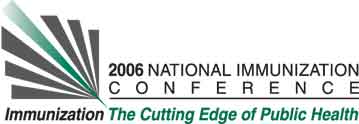Megan C. Lindley, NIP/ISD/HSREB, Centers for Disease Control and Prevention, 1600 Clifton Rd, NE, MS-E52, Atlanta, GA, USA, Abigail Shefer, HSREB/ISD/NIP, Centers for Disease Control and Prevention, 1600 Clifton Road, MS E-52, Atlanta, USA, Gail A. Horlick, NIP, Immunization Services Division, CDC, 1600 Clifton Rd., NE, MS E-52, Atlanta, GA, USA, Maggie Clemens, Frederic Shaw, OD/OLPHP/PHLP, CDC, 1600 Clifton Rd, MS D30, Atlanta, GA, USA, and Raymond Strikas, National Immunization Program, Centers for Disease Control and Prevention, 1600 Clifton Road, MS-E52, Atlanta, USA.
Learning Objectives for this Presentation:
By the end of the presentation participants will be able to describe the type of vaccination laws
Background:
Laws requiring immunizations for school entry have been shown to improve vaccination coverage in elementary and middle schools and colleges. Little is known about laws requiring immunization in other settings, including settings where healthcare is provided.
Objectives:
To determine status of laws, regulations, and other legal requirements relating to immunization for patients and healthcare workers (HCWs) in healthcare settings, and other settings.
Methods:
From 9/04 to 9/05, the CDC Public Health Law Program collected state-specific laws and regulations from all 50 states and D.C. using Lexis-Nexis and public web-based databases. Data were obtained on requirements for hospitals, ambulatory care facilities, correctional facilities and facilities for the developmentally disabled. Legal counsel from each state were given the opportunity to comment on the accuracy and interpretation of study findings.
Results:
Most legal requirements for vaccination of hospital staff concern hepatitis B vaccination. Of 51 states, only 4 have laws pertaining to influenza vaccination of hospital staff; only 3 have laws on influenza or pneumococcal vaccination of hospital inpatients. Twenty-four of 51 states have laws regarding vaccination of HCWs in ambulatory care facilities; 19 regarding residents of correctional facilities; and 40 regarding residents of facilities for the developmentally disabled. The majority of “ensure” laws (vaccination required unless an exemption specified or patient refuses) were for residents of correctional facilities and facilities for the developmentally disabled, while laws for HCWs and patients in healthcare facilities were largely “offer” laws (vaccination available, not mandatory). Research challenges included varying definitions of facilities and interpretation of statutory language.
Conclusions:
Vaccination laws vary widely by state – model legislation may be useful in creating uniform requirements among states. Further research on the impact of state laws should focus on awareness and enforcement of existing vaccination laws.
See more of Immunization Requirements and Laws
See more of The 40th National Immunization Conference (NIC)

